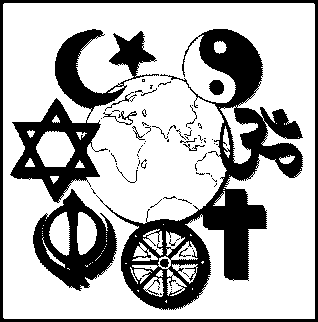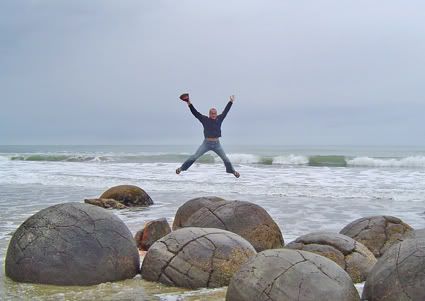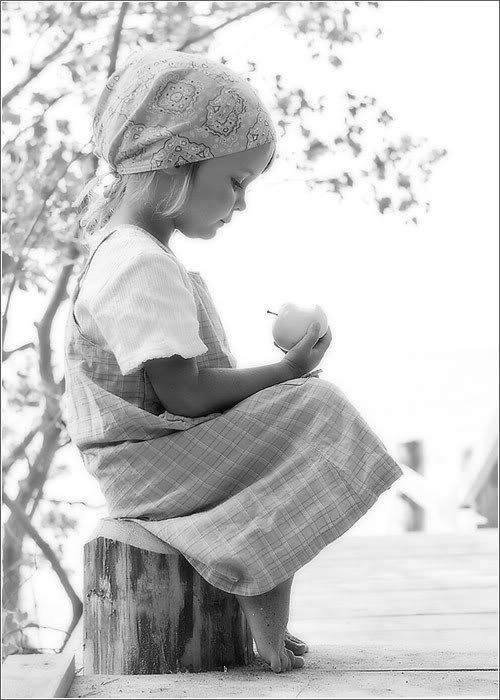The power of Intention


The world of today is built on the pillars of materialism, which hold the world as we know it. This means that all we see, smell, touch, taste and breathe, is all physical. Most of the sciences stand on these physical pillars, because throughout history trial and error is what man could give a measure, they started gathering certain inalienable truths, which became common grounds in our understanding of the world.

There are very few exceptions to the objective way of thinking. As humanity progresses, it becomes more and more objective. Some examples of none objective sciences could be philosophy and religion.
A great deal of religion is subjective because its pillars stand on metaphysical grounds. Religion is based on faith, meaning that we cannot see God, we cannot perceive God with our senses, we have to trust. A very beautiful poem written by Amatu'l-Baha' Ruhiyyih Khanum called 1This is faith, inspires us in our understanding of what faith really is.
1 This is faith
To walk where there is no path, to breath where there is no air, to see where there is no light, this is faith.

To cry out in the silence, the silence of the night, and hear no echo, believe, and believe again and again, this is faith
To hold pebbles and see jewels, to raise sticks and see forests, to smile with weeping eyes, this is faith
To say "God, I believe" where others deny, "I hear" where there is no answer, "I see" though naught is seen, this is faith
And the fierce loving in the heart, the savage love that cries, hidden Thou art, yet there, veil thy face and mute thy tongue, yet, I see and hear thee, love. Beat me down to the care earth, et, I rise and love thee, love , this is faith.

We think that our fate is set by God and cannot be changed nor influenced by us human beings, but we have to remember that in all religions it is mentioned that God granted us freewill and that we have been given the power of choice. In the book 3'Some Answered Questions' by 'Abdu'l-Baha' it is clearly described that there are two kinds of fate, the decree fate and the conditional fate. The decree fate is the one that cannot be changed nor altered, it is already marked. It is the one that, no matter what you do or not, is going to happen. The conditional fate is the one that we can alter or influence. We can, by no means, alter the decree fate. The point is that with faith, effort and action we can change our conditional fate (our current circumstance) and we don't need to worry about the decree fate because it is already marked. This can be said in a more modernist way, "Man is what he makes of himself." The fuel of the conditional fate (the fate that we can influence) is the power of intention and deeds. Some synonyms of Intention are: purpose, aim, intent, goal, target and objective.
"Some things are subject to the free will of man, such as justice, equity, tyranny and injustice, in other words, good and evil actions; it is evident and clear that these actions are, for the most part, left to the will of man. But there are certain things to which man is forced and compelled, such as sleep, death, sickness, decline of power, injuries and misfortunes......But in the choice of good and bad actions he is free, and he commits them according to his own will.....He can be an enkindled light through the fire of the love of God, and a philanthropist loving the world, or he can be a hater of mankind, and engrossed with material things. He can be just or cruel. These actions and these deeds are subject to the control of the will of man himself; consequently, he is responsible for them." ('Abdu'l-Baha, Some Answered Questions, p. 247-250)

Taken together, therefore, it is useful to think of God's Will and man's will as working in combination with one another. This relationship is easily visualized by thinking about a sail boat.
The wind is like the Will of God. It moves the boat and blows in whatever direction it will. Without the wind, there is no movement at all: "…the inaction or the movement of man depend upon the assistance of God. If he is not aided, he is not able to do either good or evil." ('Abdu'l-Baha, Some Answered Questions, p. 247-250) The rudder of the boat is like the will of man. Within the limits of what the wind will allow, the rudder enables the boat, which is like the soul of man, to turn to the left or to the right. So it is that man may choose to turn his soul towards good things or bad things. And of course, in this analogy, the sailor is like the mind and heart of man which decides which way to turn the rudder. All these forces work together to determine the journey of the boat, which is the soul.
The power of intention/visualization is within us. It has always been there and it has as well manifested itself through many different cultures and many different ways. There are many examples that diverge and changes from culture to culture, the first example of many is, the
candles used on a birthday cake. You close your eyes, identify what is it that you want and wish
for it with lots of intention. This also applies to when you wish upon a shooting star or the wealth in the end of the rainbow, among hundreds of different examples depending on the culture. In
the Arabic culture, there is proverb that goes like this "Whoso seeketh out a thing with zeal shall find it."2


This power of intention has appeared in religions of the world since times of the beginning, for example, in Christianity: '
Whatsoever ye shall ask in prayer, believing. Ye shall receive.' (Matthew 21:22) or '
What things soever ye desire. When ye pray, believe that ye receive them and ye shall have them.' (Mark 11:24) Now in the Baha'i faith, one of the most modern religions of the world, it's shown in a very direct way, as never before, through systematic steps. The Baha'i faith talks about how you can solve your problems through faith (power of intent) and it is called
4'
The Dynamics of Prayer for Solving Problems', by Shoghi Effendi. It shows five steps we need to follow in order to solve a problem or to get something that you need or want.
In 'The Secret', which is a documentary that came out recently in 2006, it shows you in three steps how you can change your life and achieve what you desire though the power of intent. The documentary is presented in a Hollywoodized manner and in a simplified language with the specific reason to reach the common masses. They use cinematographic effects to catch the attention of the person at all times and uses simple examples. This is very important to keep in mind because from time to time it can appear to be unrealistic and irrelevant, but the essence of truth is there behind all the “makeup”. These two ideas will be contrasted and analyzed. We will see that the power of intent exists, even when what you intend appears to be impossible, irrational and unreachable. In other words a miracle, a way will be made. And Remember that the first frontier is always in your head, when passed that, it is only a matter of putting hands into action.
PART ONE
When asking to a superior being (The Universe =God), in both ideas this is what they say:
· The Secret.
First Step.- Ask. The first step is to ask. Make a command to the universe. Let the universe know what you want. The universe responds to your thoughts. What do you really want? You get to choose what you want, but you must get clear about what you want. This is your work. If you're not clear, then the Law of Attraction cannot bring you what you want. You will be sending out a mixed frequency and you can only attract mixed results. Now that you know you can have, be, or do anything and there are no limits, what do you want? (The Secret by Rhonda Byrne, publish by Simon &Schuster UK, 2006)
· 'The Dynamics of Prayer for Solving Problems', by Shoghi Effendi, the first two steps of the dynamics of prayer are summarized on one from the secret.

The First Step. - Pray and meditate about it. Use the prayers of the Manifestations as they have the greatest power. Then remain in the silence of contemplation for a few minutes.

The Second Step. - Arrive at a decision and hold this. This decision is usually born during the contemplation. It may seem almost impossible of accomplishment but if it seems to be as answer to a prayer or a way of solving the problem, then immediately take the next step. (http://www.bci.org/nnby/perspectives/five_steps_to_prayer.htm)
The universe and God are by definition refered to the same. Both are infinite, mark your fate, rule above the person, make things happen, create and destroy what we know, etc. Both paragraphs talk about asking a supreme being. They talk about deciding what it is they really want, meditating on it and searching within. When this decision is known stay with it, dwell in it and hold it tight.
PART TWO
When you have to believe in what you are asking:
· The Secret
 Second Step. - is to Believe that it's already yours. Have unwavering faith. Believe in the unseen. You must believe that you have received. You must know that what you want is yours the moment you ask. You must have complete and utter faith. If you had placed an order from a catalog you would relax, know you are going to receive what you ordered, and get on with your life. You must act, speak and think as though you are receiving it now. Most of us have never allowed ourselves to have what we want because we can't see how it is going to happen. How it will happen, how the universe will bring it to you is not your concern of job. Allow the universe to do it for you. (The Secret by Rhonda Byrne, publish by Simon &Schuster UK, 2006)
Second Step. - is to Believe that it's already yours. Have unwavering faith. Believe in the unseen. You must believe that you have received. You must know that what you want is yours the moment you ask. You must have complete and utter faith. If you had placed an order from a catalog you would relax, know you are going to receive what you ordered, and get on with your life. You must act, speak and think as though you are receiving it now. Most of us have never allowed ourselves to have what we want because we can't see how it is going to happen. How it will happen, how the universe will bring it to you is not your concern of job. Allow the universe to do it for you. (The Secret by Rhonda Byrne, publish by Simon &Schuster UK, 2006)
· Dynamics of Prayer for Solving Problems', by Shoghi Effendi
The Third Step. - Have determination to carry the decision through. Many fail here. The decision, budding into determination, is blighted and instead becomes a wish or a vague longing. When determination is born, immediately take the next step.
The Fourth Step. - Have faith and confidence that the power will flow through you, the right way will appear, the door will open, the right thought, the right message, the right principle or the right book will be given you. Have confidence, and the right thing will come to your need. Then, as you rise from prayer, take at once the fifth step. (http://www.bci.org/nnby/perspectives/five_steps_to_prayer.htm)
you, the right way will appear, the door will open, the right thought, the right message, the right principle or the right book will be given you. Have confidence, and the right thing will come to your need. Then, as you rise from prayer, take at once the fifth step. (http://www.bci.org/nnby/perspectives/five_steps_to_prayer.htm)
Both paragraphs talk about having determination and faith. It will come, no matter how, it will get to you. This might be the most difficult stage for most people, because when we want something other people are kin on telling us that there is no way our wish could happen, as if it were their job to extinguish the spark of fantasy and enthusiasm. We must keep our wish in mind, the stronger the thought is, the longer we hold it in our heads, the faster it will find its way to us.
PART THREE
Act as thou it had all been answered
· The Secret
 The Third Step.- is to receive. The final step in the process is to receive. Begin to feel wonderful about it. Feel the way you will feel once it arrives. Feel it now. In this process it most important
The Third Step.- is to receive. The final step in the process is to receive. Begin to feel wonderful about it. Feel the way you will feel once it arrives. Feel it now. In this process it most important  to feel good, to be happy, because when you're feeling good you're putting yourself in the frequency of what you want. This is a “feeling Universe”. If you just intellectually believe something, but you have no corresponding feeling underneath that, you don't necessarily have enough power to manifest what you want in your life. You have to feel it, the stronger the better and keep steadfast. (The Secret by Rhonda Byrne, publish by Simon &Schuster UK, 2006)
to feel good, to be happy, because when you're feeling good you're putting yourself in the frequency of what you want. This is a “feeling Universe”. If you just intellectually believe something, but you have no corresponding feeling underneath that, you don't necessarily have enough power to manifest what you want in your life. You have to feel it, the stronger the better and keep steadfast. (The Secret by Rhonda Byrne, publish by Simon &Schuster UK, 2006)

· Dynamics of Prayer for Solving Problems', by Shoghi Effendi

The Fifth Step. - Then, he said, lastly, ACT; Act as though it had all been answered. Then act with tireless, ceaseless energy. And as you act, you, yourself, will become a magnet, which will attract more power to your being, until you become an unobstructed channel for the Divine power to flow through you. Many pray but do not remain for the last half of the first step. Some who meditate arrive at a decision, but fail to hold it. Few have the determination to carry the decision through, still fewer have the confidence that the right thing will come to their need. But how many remember to act as though it had all been answered? How true those are words –
will become a magnet, which will attract more power to your being, until you become an unobstructed channel for the Divine power to flow through you. Many pray but do not remain for the last half of the first step. Some who meditate arrive at a decision, but fail to hold it. Few have the determination to carry the decision through, still fewer have the confidence that the right thing will come to their need. But how many remember to act as though it had all been answered? How true those are words –




"Greater than the prayeris the spirit in which it is uttered and greater than the way it is uttered is the spirit in which it is carried out.”
(http://www.bci.org/nnby/perspectives/five_steps_to_prayer.htm)
Both ideas state that you should act as though you have what you want. Being happy, cheerful and thankful for what we have, what we've received and what we'll get will attract what you want faster and definitely. But it doesn't stop there, you should act as though you had it already, as though you have it right now, that what you want. It is almost impossible to picture something material in your hands. Even more difficult it is to feel as though you already have it. Because it appears that we are like slaves to our senses, that we are even limited by such. But lest not give up, it is achievable because with some mental training and some effort you can condition your mind to be able to do what you may.
In this scholarship the two different ideas have been explored and came up with the conclusion that yes, this has been around disguised in many costumes, in many different cultures, we also have God's Blessing and support to dream, get and feel graceful for what we obtain. The conditional fate can be controlled through faith, and Shoghi Effendi said it himself, "Greater than the prayer is the spirit in which it is uttered, and greater than the way it is uttered is the spirit in which it is carried out." Meaning that greater than prayer, is the way you express it and strongest is when you act as if all had been answered. The secret and the Dynamics of prayer although from complete different sources and places, one from Iran and the other from the U.S., have been described and are identical steps in essence. Trying doesn't harm anyone, this will transform the shape of your world in many different ways, your world will look brighter, you will feel happier, you will be conscious of what you want listening to your Inner being or conscience (In the world of psychology they call it your inner-child). What does your Inner child really want?

There are three main question to keep in mind that "you" need to answer, don't worry about the how, a way will be made. Answer sincerely to yourself, what are you craving for?, What do you need now to feel happy, loved? What are your water-clear Goals? Always have your Goals in mind, because if they are not clear for you, How can they be clear for God? ...............




Husseim Stuck.
_______________________________________________________________________
2 The seven valleys and the four calleys from Baha''u'llah, Page 7 1997 By the National spiritual assembly of the Baha'is in the United States.
3 Question. -- Is the predestination which is mentioned in the Holy Books a decreed thing? If so, is not the effort to avoid it useless?
Answer. -- Fate is of two kinds: one is decreed, and the other is conditional or impending. The decreed fate is that which cannot change or be altered, and conditional fate is that which may occur. So, for this lamp, the decreed fate is that the oil burns and will be consumed; therefore, its eventual extinction is a decree which it is impossible to alter or to change because it is a decreed fate. In the same way, in the body of man a power of life has been created, and as soon as it is destroyed and ended, the body will certainly be decomposed, so when the oil in this lamp is burnt and finished, the lamp will undoubtedly become extinguished.
But conditional fate may be likened to this: while there is still oil, a violent wind blows on the lamp, which extinguishes it. This is a conditional fate. It is wise to avoid it, to protect oneself from it, to be cautious and circumspect. But the decreed fate, which is like the finishing of the oil in the lamp, cannot be altered, changed nor delayed. It must happen; it is inevitable that the lamp will become extinguished
(Abdu'l-Baha, Some Answered Questions, p. 244)




































